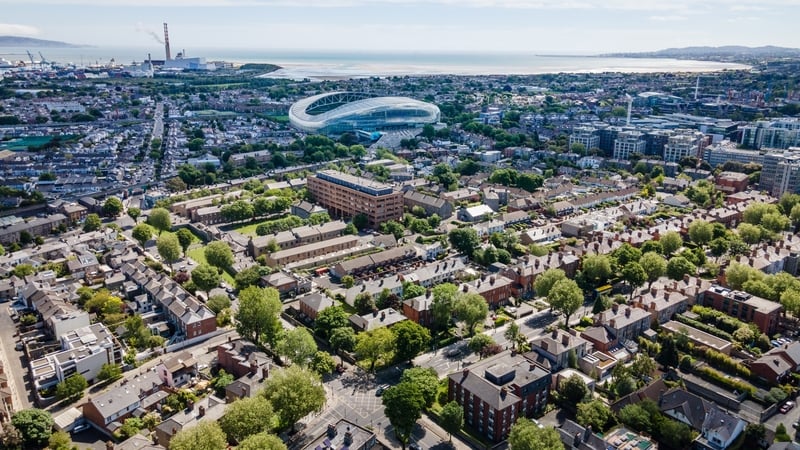The latest EY Economic Eye forecasts good growth for the two economies on the island of Ireland in 2025 and into 2026 along with more jobs and lower interest rates as central banks’ easing cycles continue.
EY said that strong employment, healthy tax revenues, and low inflation in Ireland all point to an economy in good shape notwithstanding global headwinds.
In Northern Ireland, economic and jobs growth will continue albeit at a slightly slower pace than in 2024, it added.
EY’s Economic Eye said that growth in Ireland remains strong, with the country’s GDP forecast to rise by 4% this year and 3.8% in 2026.
Modified Domestic Demand, which focuses on the domestic economy, is expected to grow by 3.3% in 2025 and 3.2% in 2026, with consumer spending expected to grow by 3%, modified investment by 4.5% and exports by 4.5% in 2025.
EY said that Ireland is forecast to significantly outpace growth forecasts for its neighbours in the Euro area (1%), the UK (1%) and the US (2.2%).
Looking ahead, EY projects employment growth of 2.2% in 2025 and 2% in 2026, and while the unemployment rate is projected to edge up to 4.4% in 2025-2026, it said this remains low by historical standards.
Meanwhile, inflation is stabilising as key drivers of the spike in 2022 and 2023, particularly energy, have waned.
EY has forecast that inflation will stand at 2% in both 2025 and 2026, down from 6.3% in 2023 and 7.8% in 2022.
It also said it expects that the ECB is not yet done with interest rate reductions, with further interest rate cuts pencilled in for 2025, taking the main refinancing rate down to 1.9%.
On Northern Ireland, it said its economy and labour market did reasonably well in 2024 in spite of challenges across the broader UK economy.
EY forecasts that the NI economy will grow by 1% this year, slightly down on the 1.2% growth in 2024, and by 1.7% in 2026, with employment to increase by 0.4% in 2025 before expanding to 0.8% in 2026.
The Bank of England is expected to maintain its gradual approach to monetary policy loosening and to lower interest rates to 3.75% by the end of 2025, from 4.5% currently.
EY said this will benefit households and businesses in Northern Ireland and lend support to the economy.
But a slowdown in job gains is forecast for Northern Ireland with growth of 0.4% pencilled in for 2025 after a good performance last year of 1.6%, which reflects the softening economic conditions and the increase in employers’ National Insurance contributions that comes into force in April.
Dr Loretta O’Sullivan, EY Ireland’s chief economist, said the Irish economy entered 2025 in good shape, with impressive employment numbers and the unemployment rate at a near-historic low.
“Wages are rising faster than consumer prices, boosting households’ purchasing power, and the European Central Bank is cutting interest rates, lending support to business investment,” Dr O’Sullivan said.

“Exports have rebounded and the fiscal position is also strong, enabling large-scale public capital spending. More economic growth is in store this year and next as consumers spend on goods and services and businesses invest in technology and other transformation levers,” she added.
But she noted that policy shifts in the US are making for an unsettled external environment and navigating global trade uncertainty is on the agenda.
“Specifically, US trade policy is expected to be transactional during President Trump’s term in office, with protectionist measures used to extract concessions from partners including China, Canada, Mexico and the EU. Ireland has substantial trade links with the US meaning it is particularly exposed to potential US trade barriers,” she stated.
She said that while the domestic economy is performing well, globally there is a lot of uncertainty at present, so investment in innovation and infrastructure is needed now more than ever.
“Doubling down on infrastructure delivery, training and upskilling the workforce, accelerating the green transition, and harnessing transformative technologies like artificial intelligence will be key, underpinning competitiveness and ensuring Ireland’s continued attractiveness for Foreign Direct Investment,” she advised.
Rob Heron, EY Northern Ireland Managing Partner, said the Northern Irish economy looks set to continue to grow this year and interest rates are trending downwards, which is good news for businesses and consumers.
“A key strength of Northern Ireland’s economy is its labour market, with further jobs growth expected this year, albeit at a lower rate of growth than 2024,” he said.
EY NI will open its new office in Derry later this year, which Mr Heron said showed the company’s commitment to fostering talent and innovation to support regional development and prosperity.




